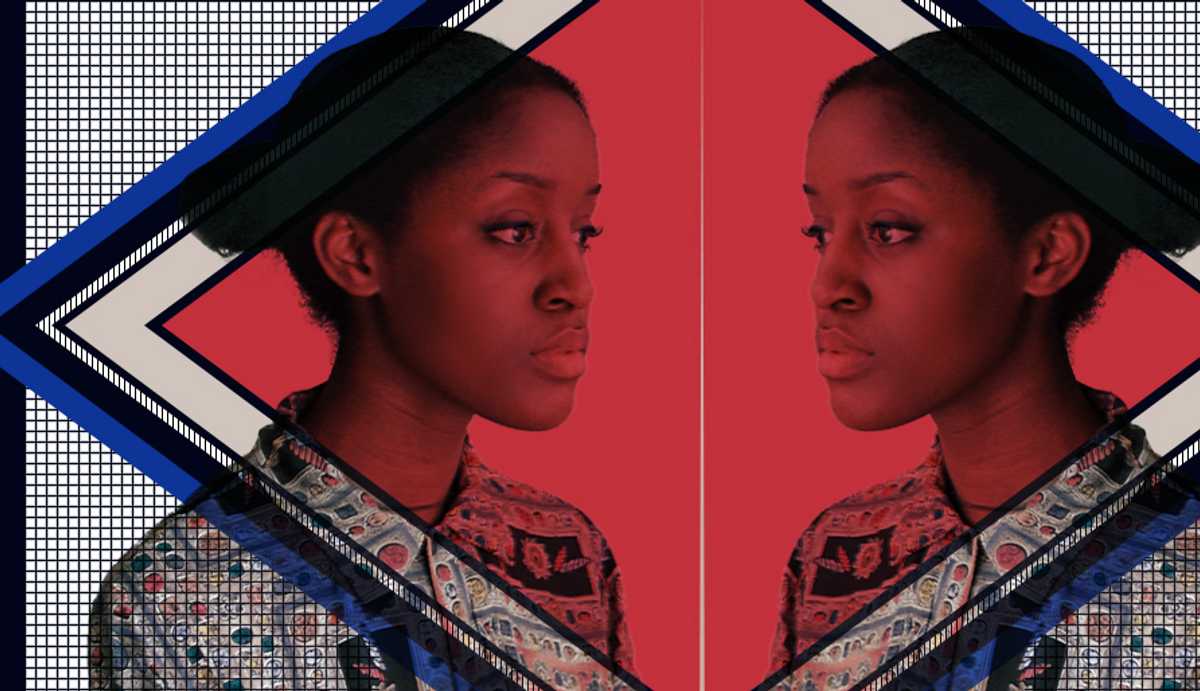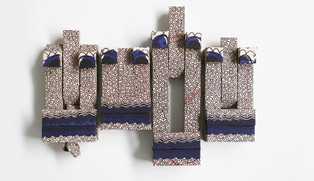Skin Deep: What inspired All These Things? Lizbet Sempa: The song was based on karma and the healing properties of time. I wanted to write something about how all the things you do to people will return to you. In some parts, it’s a song about revenge – not about actively doing something harmful, but about waiting for time to play its part. Time is really powerful. I wrote the song expecting karma to come back to a person in my life and it did. It was a significant moment, because I’d written the song months before. I guess I’m just psychic like that [laughs]. SD: Maybe you should give up the day job… LS: I’d never give up the music! But generally I write my music with the expectation that my words will hold true in the future. It’s always been like that. SD: As well as prophetic, how else would you describe your music? LS: I’d describe it as classical and modern with a bit of jazz. I think my classical side is very influential in terms of the composition of the music. I started training in classical music when I was seven and continued until I was 17. I’m slowly getting back into it now and I think you can hear that in my music. Most importantly though I think my music is truth, pure and simple, and that makes it unique. [soundcloud url=”https://api.soundcloud.com/tracks/87849874″ params=”auto_play=false&hide_related=false&show_comments=true&show_user=true&show_reposts=false&visual=true” width=”100%” height=”450″ iframe=”true” /] SD: When did you know you wanted to be a music artist? LS: Really and truly, only when I started getting Soundcloud followers. Up until that moment I wasn’t taking music seriously. I released On These Hills and Epiphany and started getting a lot of attention. That’s when I thought, “Oh shit, maybe I can actually do this.” Funnily enough I always thought I’d go into musical theatre. I remember getting the role of Prospero in The Tempest and thinking, “Yeah, this is for me”, but when I started applying to musical theatre schools I just kept getting rejected. I’m in drama school now training to be an actress and what I’ve realised is that musical theatre and music would have clashed way too much. I’m a big believer in fate, so I think I ended up in the right place. SD: What – or who – inspires you? LS: Artists like Georgia Anne Muldrow, Jamiroquai, Leila Hathaway and Erykah Badu. I’m also inspired by theatre. SD: You seem to model yourself as a young musician rather than a young black musician. Why do you think that’s important? LS: My race is important – after all, I am a young black musician making Black-British music. But I’m not just that person. I don’t feel the need to label myself as that alone. My music stands out enough for me. SD: Last time we checked, you had over a million Soundcloud followers. How did you get so many? LS: I genuinely do not know. When I got to 100k, I was like “okay, this is a tad fucked up”, but when it got to a million it stopped being a surprise. It’s such a great thing to have, but I try not to get too swept away by it all. I think there’s a big difference between online success and tangible success. Record sales, live gigs – these things are really important. There’s listening to the music and buying the music. It’s different. Soundcloud followers are amazing, but even artists need to pay their bills. SD: What was it like starting your music career independently through Soundcloud? Do you think Soundcloud and other tools like it make the music industry more accessible to young aspiring artists? LS: Platforms like Soundcloud have definitely made it easier for artists to put their work out there, but personally I don’t think it has put artists on a level footing with record labels or management. A record label or management is still really important to have as an artist. Once you’re signed to a label, the management team will have a big say in what you release, when you release it and so on. There are so many challenges with online platforms too. Branding is really important, the rate at which you release music, the type of music you release – these are all factors you have to consider. Sometimes I’ll hear a Soundcloud based artist put out music, and it sounds exactly the same as a previous track of theirs. It’s important to have variety on these kinds of platforms. That’s why the next track I release is going to be really different from my older work and my upcoming EP. You have to think a lot about what you put out on online platforms. That said, if it wasn’t for Soundcloud I wouldn’t be where I am today. By uploading music here and there I was able to get my work into the right hands. It was a happy accident. When I first released my music, I wasn’t doing it for any particular reason; I was just putting it out there and people just started listening. SD: You’ve talked about some of the tensions that exist between artists and record labels. Now that you’ve got a management team how do you retain creative control? LS: They’re really supportive, and I will always, always say no to something I’m not comfortable with. My songwriting changed when I first got management. I was, of course, really skeptical about working with other writers and changing my style. Writing music is such a personal process. I don’t really like writing songs from scratch with other writers. I’ve done it before and it’s never natural, so a long time ago I decided that if it’s not coming from my heart it definitely won’t be coming from my mouth. A lot of people who don’t have management or people in the music industry to work with find it really difficult to carve out a name for themselves – it really is brutal out here. I remember when I was 16 I was trying to record my music while teaching drama and dance at a catholic youth club and then running back and forth between the two places. I would spend literally all the money I earned teaching on a studio session. Sometimes I didn’t even have enough but the studio manager would let me use the space for free around Christmas time. He was such a babe, but that experience was an important lesson in understanding just how hard it is to make it in the industry. SD: But you have collaborated with people in other ways. Who are some of the artists and producers that you have enjoyed working with? LS: Ben [Collier, writer and producer] and Tim [Kellett, from Simply Red] have been a dream to work with. One thing that has always stuck with me about those two is that they let my mind go wild – they really allowed me to be creative. Ben would say, “do some weird stuff” and I’d do it and somehow it just worked. I’m pretty sure everyone else in the studio was like what the fuck, but it always ended up amazing. Tim knows his stuff. He really helped me. He taught me to leave it alone and not tinker with it too much. Ghostpoet was unbelievably supportive. I know if I send him a message he’ll get in contact with me, which is really comforting. It was such a pleasure to have been on stage with him at Hackney Empire. He’s got such a warm soul. SD: Seems like there is a lot of back and forth that goes into making the music. How would you describe creative process? LS: I’ll write a song, send it to a friend, leave it for two weeks and then present it to the management team. They always give me really constructive advice. It’s important to remember that most management teams have your best interests at heart. It’s also good for them if you’re successful. After a few changes it’ll get rejigged, then mix mastered, then put into a big bag of final songs. I’m coming out with an EP next year, Built for Love. I’ll pick four final songs from 15. It sounds like it’ll be a hard selection process but you can always hear which tracks work best with each other. I’ve got so many songs in the pipeline, around 100 that I’ve written but haven’t recorded. Four years of songwriting does that to you. It’s a privilege to have a really big catalogue – it means that I’ll be able to pick just the exceptional tracks. SD: We’re working on a theme called Imagining 2043 for our print edition. Where do you think the music industry will be? LS: I’d like to see new, crazy sounds, not necessarily futuristic or electronic either – it’d be cool to bring back some stuff from the 90s, 80s, 70s. There’s a track called Loop The Loop by Bullion featuring Sampha and it’d be great to hear music like that in 2043. I love the vibe from it – it brings so much greatness from back in the day. Everything’s a cycle right, so who knows what will be happening then, maybe Viking or Roman music will be in vogue. I hope by then that artists are more experimental and really pushing the boundaries of their work, especially in pop. I want pop artists to move beyond the standard ‘verse, pre-chorus, chorus’ structure. I’d like to hear a one minute song of silence, changed backing, something different. Hopefully there’ll be new artists too – Rihanna make way please. SD: Your EP Built for Love will be out next year. Where did the name come from and what’s next for you? LS: One of the songs is called Built for Love, so that’s where the EP title comes from. That’s what we all are: built for love. It’s cheesy but it’s true. The cheese is the truth [laughs]. When I first began writing I used to think “this stuff is way too naff” but now I just think it’s honest. I’m just going to keep getting heartbroken haha. I’m going to keep making music, keep singing my truths. Oh, and if I can get an album released that would be great. Spread some love, make some music. That’s what’s next. You can follow Lizbet Sempa on Soundcloud here.
Skin Deep meets Lizbet Sempa

Lizbet Sempa discusses karma, sound vogues and the music industry


